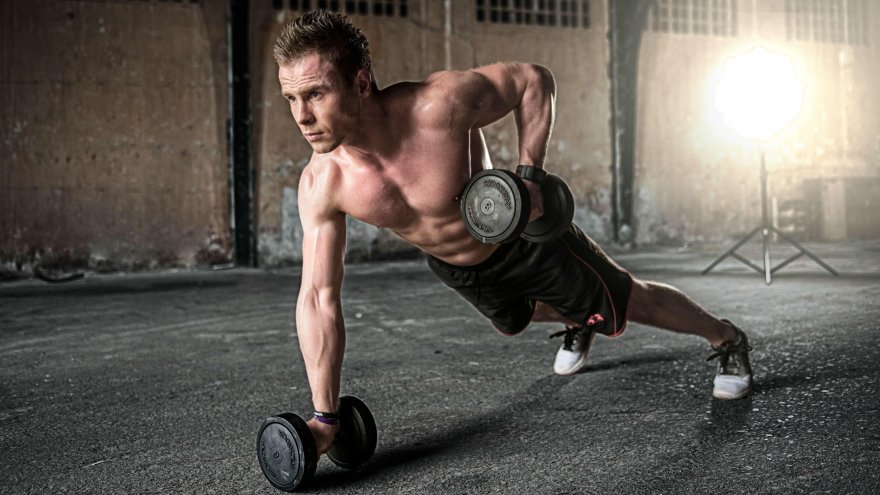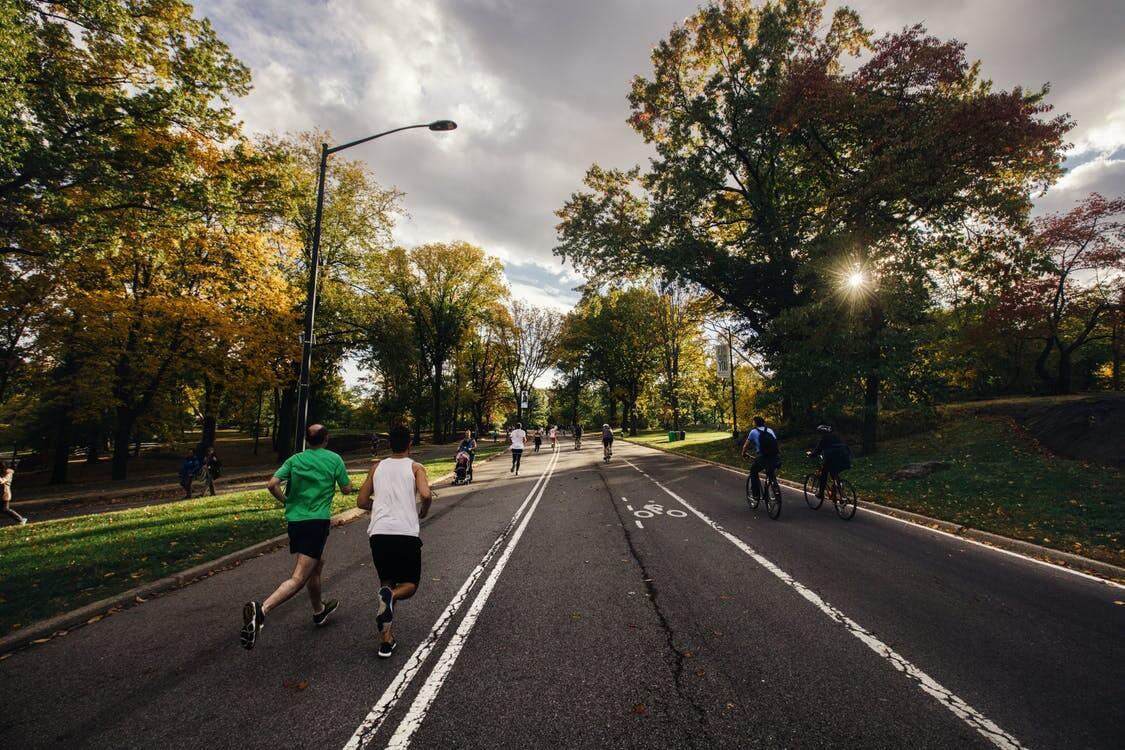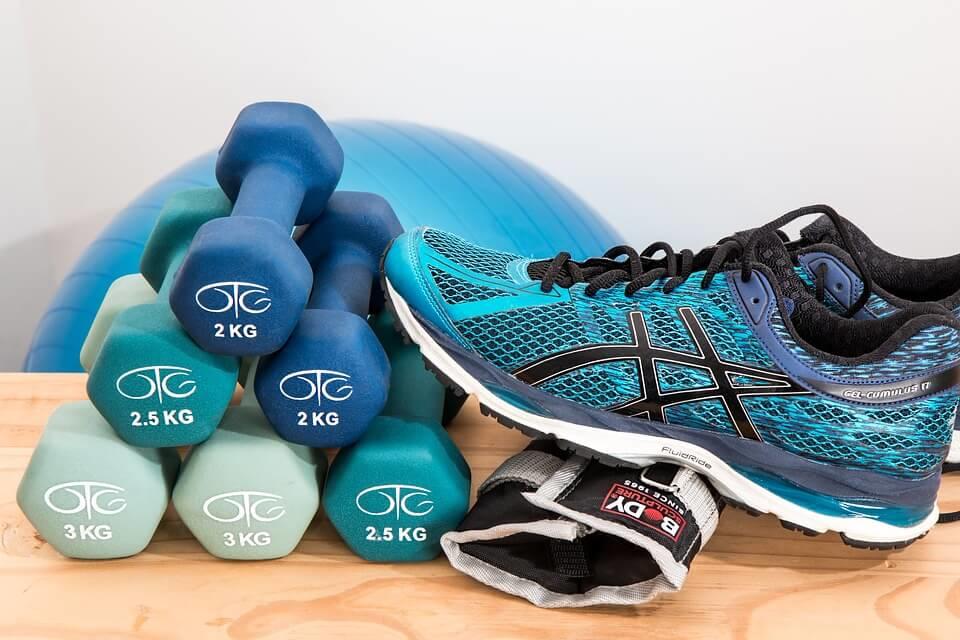Run Away from Advice from Athletes (Who Don’t Run)

My father likes to joke that I learned to run before I learned to walk. In the 29 years that I have been running and the 12 years that I have been running races, I have come across all kinds of running advice. Some great, some good, some bad, and some very, very bad. With this being the age of technology, running advice is at our fingertips anytime we want or need it.
Most of the time, I let advice from nonrunners go in one ear and out the other. I know a lot of runners who do the same. Nonrunners advice is sometimes outdated, sometimes it makes no sense, and sometimes it’s down-right hilarious. Something that has been brought to my attention recently, is athletes (who are not runners) giving advice about running to runners.

The first instance was about 3 months ago when I joined a secondary gym. I was running on a treadmill scoping out the joint and learning the lay of the land when a young man, who looked to be a bodybuilder, came over to me and said, “Excuse me Miss but, your running form is all wrong. Your heels need to be hitting the ground and you need to lean back instead of leaning forward”. As you can imagine, I was a little shocked and politely said, “Thank you for your advice but, I’ve been using a running trainer for over 5 years and I prefer to run this way”. The young man looked at me like a psychopath and muttered the phrase “Okay, lady when you break your ankle don’t say I told you so”.
I brought this subject up to one of my running groups. Their reactions were unanimous…. Do not ever listen to running advice from an athlete who is not a runner. Running, like any sport, comes with its own set of rules, obstacles, and training plans. A person who spends their free-time running would not be qualified to give a bodybuilder sound advice on bodybuilding or a football player advice on football. Yet, for some reason athletes from many different sports think their advice to runners is not only accurate but superior to advice from actual runners.

Here are some of the most outrageous advice I have been given or that was told to me by my running group. Needless to say, every piece of advice listed below was given from an athlete who does not run.
Don’t worry about the pain. It’s only running, right? Push through it and keep going, no matter how bad you think it hurts.
Ummm, hello! That’s awful advice, especially coming from an athlete. Running may not help to build huge muscles but running takes quite a bit of muscle power to complete. The hamstrings, quads, gluts, and hip flexors, just to name a few, are all utilized in running. This means that a tear, break, or strain of any one of these muscles can happen and “pushing through” may be extremely detrimental.
Make sure you buy a new outfit and especially new shoes before the big race next week.
While this may make sense for bodybuilders on stage or football players for a press conference after their big win, this is extremely impractical for runners. Not only does running gear costs a fortune, wearing new, unfamiliar clothes and/or shoes on race day may lead to discomfort, chafing, blisters or worse. A runner’s feet need to be at their highest comfort level while also having the maximum amount of support. Race day is the absolute last day you want to be breaking in a new pair of running shoes.

If you don’t like speed training or distance day, just skip it. I skip leg day all the time.
Just skip it? And from what planet do you hail from? Running is the name of our sport and RUNNING is how we train for our sport. Is cross-training important? Of course it is but, runners need to run. And more importantly runners need to train by running speed and distance. Speed training helps to increase a runners pace and distance training helps the body adjust to running longer mileage. A runner can’t train unless they are actually running.
You should probably not drink that much water before the race and during the race. You’ll be forced to hold your pee for 10+ miles!
Apparently, this person has never had to pee in the woods. If a person (runner or not) has to pee then the person should pee. Pull over, run over, bike over, to the closest bathroom (port-a-potty or hidden tree) and do what you have to do. Also, not drinking water is probably one of the most ridiculous things I have ever heard. All runners need to stay properly hydrated. A runner can lose approximately 18-35 fl oz per hour so to stay hydrated they need to consume extra water not less water.
I have absolutely nothing against athletes who don’t run. I think they are phenomenal people who excel at their sport. However, would I listen to advice they give me in regards to running? Heck no!
As the saying goes, knowledge is power. Do your research and learn as much as you can on the subject of running. Are you looking to improve your speed? Are you looking for race day tips? Do you want to find a more effective training plan? Great! All of these are valid needs and you have every single right to seek out advice. Just make sure you are taking advice from the proper sources. Good advice is priceless but, bad advice… well, bad advice can cost you more pain then pleasure. So my advice for you is to practice your speed and run far away from any running advice that isn’t coming from a runner.
Latest Articles
 Is Running on a Treadmill Easier Than Running Outside?Runners have their own preferences, whether it is treadmill running, running outside on the road, or exploring trails. So...
Is Running on a Treadmill Easier Than Running Outside?Runners have their own preferences, whether it is treadmill running, running outside on the road, or exploring trails. So... Is It OK to Use Trail Running Shoes on the Road?While trail running shoes can be used on roads, especially in situations where a runner encounters mixed terrains or pref...
Is It OK to Use Trail Running Shoes on the Road?While trail running shoes can be used on roads, especially in situations where a runner encounters mixed terrains or pref... How to Fix Sore Quads After Running?Rest, ice, gentle stretching, and over-the-counter pain relievers can help soothe sore quads after running. Also, ensure ...
How to Fix Sore Quads After Running?Rest, ice, gentle stretching, and over-the-counter pain relievers can help soothe sore quads after running. Also, ensure ... 10 Fruits With The Most Electrolytes to Replace Sports DrinksThese fruits are high in electrolytes such as potassium, magnesium, and calcium, essential for hydration, muscle function...
10 Fruits With The Most Electrolytes to Replace Sports DrinksThese fruits are high in electrolytes such as potassium, magnesium, and calcium, essential for hydration, muscle function...

